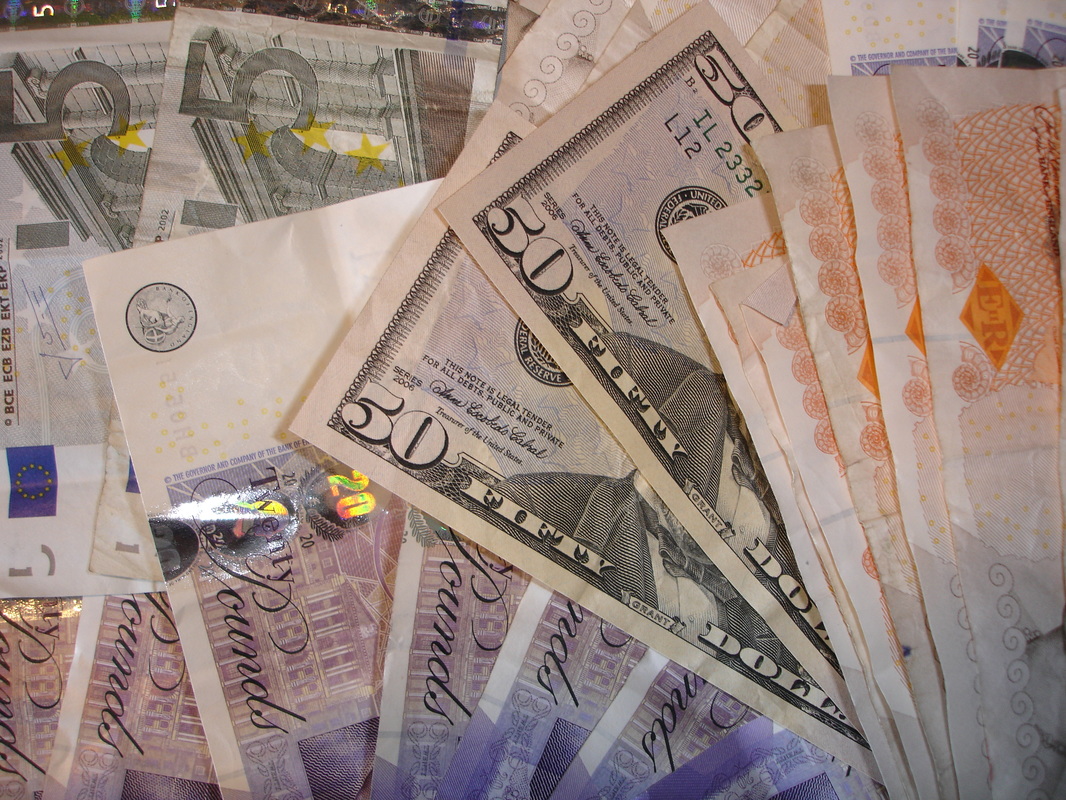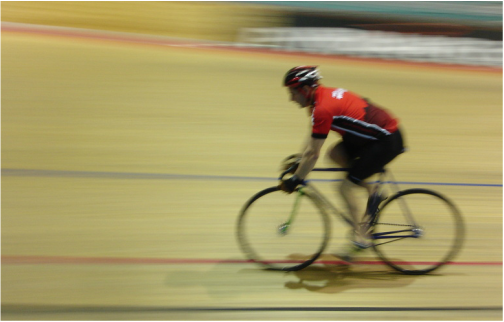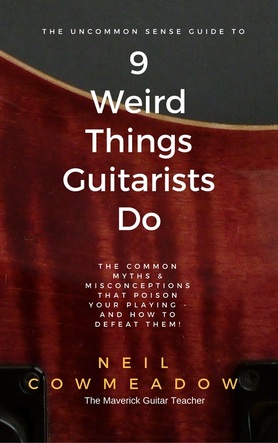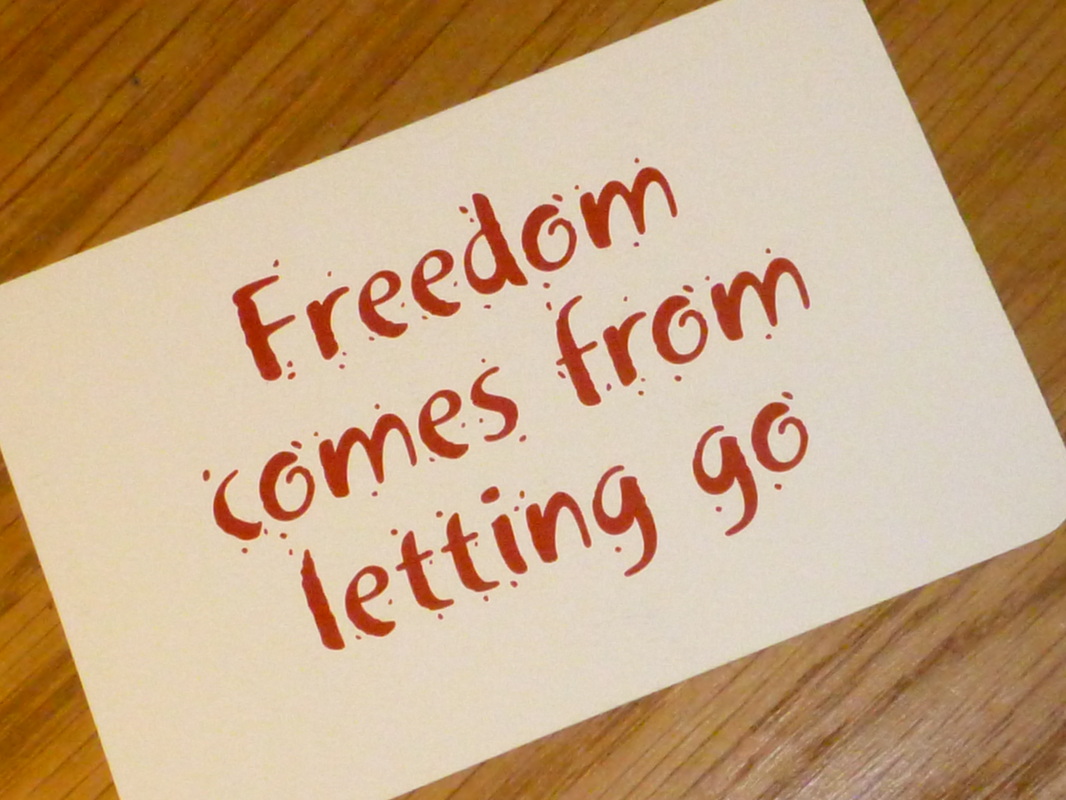|
The Thursday Thesis - 27/10/2016 “What did you watch last night?” I used to get asked that question most mornings at my old office, as colleagues discussed last night’s TV programmes. Funny that they should ask, because everyone knew I was the office eccentric – the oddball who didn’t watch telly. In fact, I haven’t owned a television for 21 years. Here’s the reason why: When I worked in Ukraine (a former state within the Soviet Union) I lost the habit of watching TV. The local shows were poorly made and satellite receivers only gave us around 30 channels, and most of those were in Russian or Ukrainian. My Russian was good enough to haggle in Bessarabski Market or get along around town and with friends, but I couldn’t keep up with the fast speech of the newsreaders on the least-bad channel. So, when I came back to the UK, I was presented with Big Brother and its parade of dysfunctional sociopaths and half-wits: all of whom seemed bent on being utterly vile to each other. A light-bulb lit up in my head. I knew I wouldn’t like to hang with people like that, myself. But if I watched them in a TV show, I might as well be in the BB house with them... Those BB Housemates would become my Reference Group, and I’d become just like them if I spent time unconsciously absorbing what they did. The TV was immediately and unceremoniously taken down from its dominating position in the lounge and dropped into a skip. Undoubtedly the smartest thing I ever did. Simple. But what’s the real cost of owning a TV? Here’s one way of looking at what TV costs you, over a year: Cost of TV £500 TV Licence £145 SKY TV (£38 per month) £456 Electricity (£2 per week) £104 TOTAL COST £1205 per year “So what’s wrong with that?” I hear you say. Plenty. My illustration missed out the biggest and most important cost of all – your time. The average person in the UK watches around 28 hours of TV every week, according to the BBC. That’s more than a whole day of your life watching telly every week. And it’s 1456 hours (almost 61 days) per year. It’s 72800 hours over a 50-year period. Now, let’s pretend our average Brit makes the average wage of £26,000 per year and works the UK average of 43.6 hours per week, or 2267 hours per year. That gives us a rough and ready value of working time of £11.46 per hour. Using that £11.46 to calculate the opportunity cost of average TV watching: 1456 x £11.46 = £16,685 per year Our 50-year value is then £834,288. But the tragedy is this: instead of working those 72800 hours over 50 years – the average Brit could be enjoying more of the things that matter most to them in the World. We could talk more, play more, learn more, love more, and listen more... We could become extraordinary, instead. What are you watching tonight? © Neil Cowmeadow 2016 Please Like and Share The Thursday Thesis with your friends, family, and anyone else. I’d love to hear your comments, along with any ideas you’d care to hurl at me.
[email protected]
0 Comments
The Thursday Thesis - 20/10/2016 “Just get moving...” Yesterday I wagged my tail. I danced. I grinned much more than is socially acceptable. Today my tail is wagging again, and I’m getting the hang of dancing whilst sitting at my desk without the chair castoring off in all directions. You see, I’ve got My Mate Mo on my side. Mo? Mo – more formally known as Momentum – is ongoing movement. Specifically, movement in the direction you want to go. And I’ve got some serious Momentum, right now. On Tuesday I published my first book on Amazon Kindle: 9 Weird Things Guitarists Do - The Common Myths & Misconceptions that Poison Your Playing - and How To Defeat Them. Today I’m back at my desk, working on my next book: I’m keeping my Mo.
There’s no way I’m taking a week off to rest, clear my mind or plan the next thing – no way! You see, I’ve been bitten that way before. When I finished my degree, I took a long weekend off to “rest”, and that weekend became a week, then a month. Yep, you guessed it - almost a year later I was still “taking a little time off” and going nowhere. I’d lost my Momentum. During my degree I worked over 70 hours a week, getting up at 5am so that I could study before I was sucked into the vortex of my working day. Some days I slept through all three alarm clocks, but I made sure that I got something done every single day - even if it was just ten minutes of editing. Those thin slices of time kept nibbling away at the coursework and kept me moving forward every single day: that’s massive momentum. Momentum works for me: it works for everyone, either positively or negatively. So here’s the thing: whatever you do, get Mo on your side. If you already have it, cling to it ferociously and don’t let go – your Momentum will drag you towards your goal. Just keep doing something, no matter how small, to maintain your Mo. And if you’re not moving, yet, that’s an absence of Mo, No-Mo or even Anti-Mo. So get a little Mo happening, and just do something – anything –that takes you in the direction of where you want to go. Then do something else tomorrow, and the next day, and the next...because that’s how you get Momentum, one wafer-thin slice at a time. It’s that old saying “A journey of a thousand miles begins with a single step,” isn’t it? Just add the words “in the right direction” to the old proverb, and do something. Right Now. © Neil Cowmeadow 2016
The Thursday Thesis - 13/10/2016 “Speak as though it were already true...” As you may already know, whatever you say about yourself will naturally tend to become true for you, in time. So it’s common sense to make it good, then – or so you’d think. It makes sense to define yourself as you would wish to be, and wait for reality to catch up with you. The more widely you declare yourself, the more compelling will be your need to confirm – and to conform to – your identity. Defining yourself in that future-oriented way creates an image in your mind, and you’ll begin to mould yourself to fit that image and to be congruent with the ideas you choose to hold about yourself. If you want to write more often, describe yourself as a writer: you’ll start to do what writers do – write! You’ll begin to feel a need to write, because it staves-off the sneaking suspicion that you might just be a fraud who only pretends to be a writer. Tell the world you’re feeling down and you’ll start to behave in ways that are consistent with feeling down. The reverse is also true – though feeling happy and optimistic still carries a social stigma in the UK. So take a moment to check that what you say about yourself is worth living up to. If it isn’t, change it right now, forever. Then tell the people who matter to you who you aspire to be, and you’ll start to behave in ways that bring that aspiration into being. Say it as though it were already true, and wait for reality to catch up. Simple. © Neil Cowmeadow 2016 Special Notice: Jenny Attiyeh, who runs http://thoughtcast.org (an interview and ideas sharing site for creative and academic types) pointed out that she holds the worldwide trademark on the word ThoughtCast and has asked me to change my blog’s name to prevent confusion. So, The Thursday ThoughtCast will immediately and dynamically transmogrify itself into the new, improved and thoroughly modest Thursday Thesis. Incidentally, when you’re finished here (and NOT before!) you might like to have a look at Jenny’s site, especially if you like artists and bears. Please Like and Share The Thursday Thesis with your friends, family, and your cat. I’d love to hear your comments, along with any ideas you’d care to hurl at me.
[email protected]
The Thursday Thesis - 06/10/2016
“How the right shoes turn back time, make you feel good, and saves on physio fees” When was the last time you spontaneously skipped from a walk into a loping jog and then sprinted to the next signpost, just because it felt fantastic? It’s been a while, hasn’t it? Why? Everybody knows that running confers the health benefits of cardio-vascular fitness, boosted metabolism, higher self-esteem, and is also a proven stress reliever – but even they are not the best reason to run. No, the best reason to run is that it is a ton of fun. Running makes humans feel good, and through all of history and literature is associated with freedom and self-empowerment. So why don’t we all run, just for the fun of it? What’s wrong with running? Running shoes. You know the ones I mean, don't you? The ones with the built-up heels and all that bouncy foam cushioning: they're what’s wrong with running. I’m talking about shoes that promise unrivalled athletic performance, made by multinational corporations that have never produced a shred of evidence to support their claims. Nothing. Zero. Ever. Zilch... Running shoe manufacturers taught us to overlook the fact that the human body is the ultimate distance running machine, and our legs are equipped with two superb natural shock absorbers – the arches of our feet and our Achilles’ Tendons. For two million years our ancestors ran lifelong and injury-free. They also ran barefoot. A barefoot runner runs differently to a modern, shod runner: barefoot runners naturally land defensively on the middle part of their feet, flexing their arches and loading their Achilles tendons up with free energy to propel them forwards into their next stride. That’s why you and I are built the way we are – to protect ourselves from damage and to optimise energy use. That efficiency is also why running for weight loss fails: humans are just too good at running. But modern, built-up shoes force your feet to land on their heels, and heel-striking bypasses your body’s natural mechanism for soaking up impacts, transmitting the violent force of your landings straight up your shins and into your knees and hips, which cannot absorb the shocks. The results are painful shins, knees or hips, and sometimes all three. And because your feet are unable to move freely inside your shoes, they are more prone to injury, too. Imprisoning your feet in a close-fitting shoe that is designed to restrict foot movement will be disastrous for your feet. It seems obvious, doesn’t it? It’s 20 mm of bouncy foam rubber versus Nature and two million of years of evolution. No Contest. I switched to unpadded shoes with separated toes a few years ago, after enduring a decade of sore knees and shin pain. I run differently, now; I also run more often and for longer, but I don’t get injured anymore. But, best of all, I’m enjoying running as much as I used to when I was a kid. I know that my barefoot shoes are really time machines, carrying me back through time to splash through the mud and puddles of my childhood. Strangely, they feel very similar to cheap, the black canvas plimsolls that everyone wore back then - before running shoes had been invented, and when nobody had heard of a running injury. I’m backing Nature and Evolution – how about you? © Neil Cowmeadow 2016 Like and Share The Thursday Thesis with your friends, family, and your cat. I’d love to hear your comments, along with any ideas you’d care to hurl at me: [email protected] |
Share it with your friends
It's Like This...The Thursday Thesis shares ideas which I think are worth spreading. Archives
May 2022
Categories
All
All content on these pages is the intellectual property of the author, unless otherwise stated, and may not be used in any form or reproduced under any circumstances without the authors permission.
|





 RSS Feed
RSS Feed